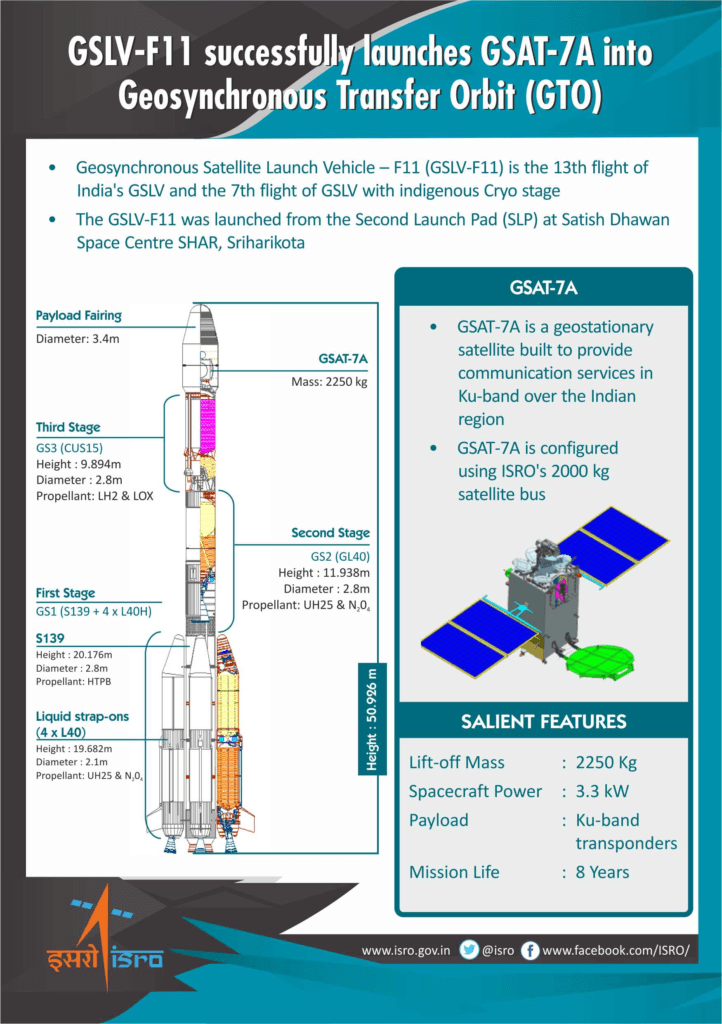Indian Space Research Organisation (ISRO) on December 18, 2018 successfully launched the communication satellite GSAT-7A from the Satish Dhawan Space Centre (SDSC) in Sriharikota from Geosynchronous Satellite Launch Vehicle-GSLV-F11 .
- The GSLV-F11 lifted off from the Second Launch Pad at SDSC at 04:10 pm IST, carrying 2250 kg GSAT-7A and about 19 minutes later, injected GSAT-7A into a Geosynchronous Transfer Orbit (GTO) of 170.8 km x 39127 km which is very close to the intended orbit.
- As per the ISRO Chairman K. Sivan, in the last 35 days, ISRO has successfully launched three missions from SDSC starting with GSLV MkIII-D2 on November14, PSLV-C43 on November 29 and finally GSLV-F11 on December 18, 2018.
GSAT-7A
- GSAT-7A is the heaviest satellite being launched by GSLV with an indigenously developed cryogenic stage.
- The cryogenic stage of this vehicle has been modified to increase the thrust rate.
- GSAT-7A is an advanced communication satellite with a Gregorian Antenna and many other new technologies. The testing and realisation of this satellite has been carried out meticulously by ISRO team.
- GSAT-7A is the 39th Indian communication satellite of ISRO to provide services to the users in Ku-band over the Indian region.
- Most of the functional requirements of the communication payloads and the other systems have been derived from ISRO’s earlier geostationary INSAT/GSAT satellites.
GSLV
- GSLV is ISRO’s fourth generation launch vehicle with three stages.
- The four liquid strap-ons and a solid rocket motor at the core form the first stage. The second stage is equipped with a high thrust engine using liquid fuel. The cryogenic upper stage forms the third and final stage of the vehicle.
- GSLV-F11 was the seventh flight carrying indigenously developed cryogenic upper stage.
- This launch was the 7th mission of ISRO from SDSC in the year 2018. This was the 13th flight of GSLV-MkII



